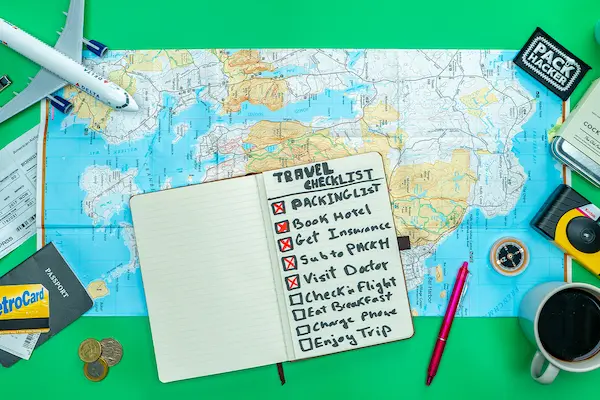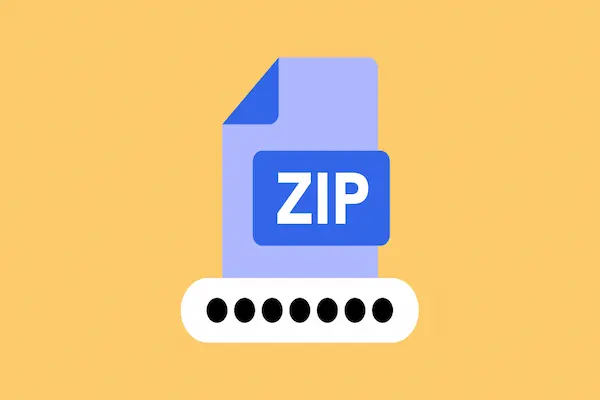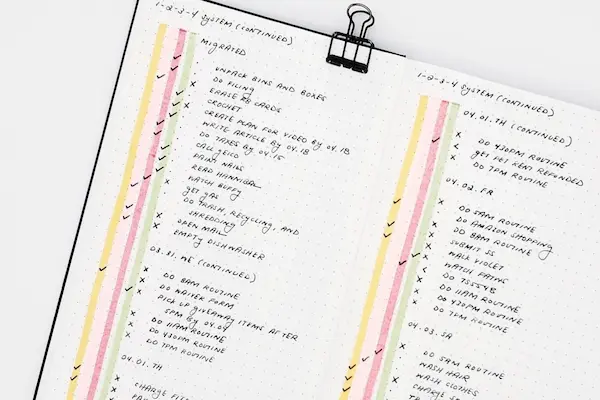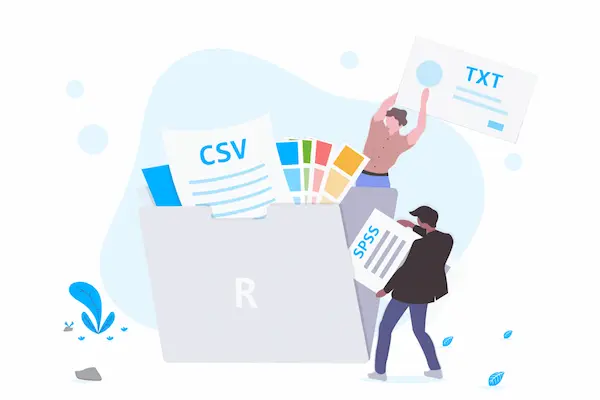Preparing your travel documents is one of the most important steps to ensure a smooth trip. You need a valid passport with at least six months of validity beyond your travel dates, and depending on your destination, you may also need a visa or electronic travel authorization. Missing or incomplete documents can cause delays or even stop you from entering another country.
Besides passports and visas, gathering copies of your documents and keeping them separate from the originals is key. You should also check any special rules, like permissions if you’re traveling with children or specific medication regulations. Taking these simple but necessary steps helps you avoid problems at border control and stay ready for unexpected situations.
Gather Essential Travel Documents
Before traveling, make sure you have all the key documents ready. Having the right paperwork in order avoids delays and problems at borders. Focus on your passport, visa, and travel insurance, as each plays a vital role in a smooth trip.
Passport Requirements
Your passport is your primary ID for international travel. It must be valid for at least six months beyond your planned return date. Many countries enforce this rule to prevent entry issues. Check the number of blank visa pages you have; some trips need several empty pages.
If your passport is close to expiring, apply for renewal early. Processing times can vary by country and season. Keep your passport secure, but also make physical and digital copies. Store copies separately in case your passport is lost or stolen.
Visa Process
Visas are official permissions to enter certain countries. Requirements differ widely depending on your destination and nationality. Some countries issue visas on arrival, others require you to apply in advance.
Start your visa application well before your trip. Processing can take weeks or longer. You may need to submit documents like your passport, photos, proof of travel plans, and financial statements.
Check the type of visa needed, such as tourist, business, or student. Follow the instructions carefully. Keep approved visas with your passport and carry copies for backup.
Travel Insurance Policy
A travel insurance policy protects you financially from unexpected events. This includes medical emergencies, trip cancellations, lost luggage, and delays. Choose coverage that matches your trip length and planned activities.
Buy insurance before leaving, as some claims are denied if you purchase it later. Read the policy details carefully to understand what is and isn’t covered.
Keep a printed and digital copy of your travel insurance policy handy. Include emergency contact numbers from your insurer. This ensures you get help quickly if you need it.
Create and Organize a Travel Checklist
You need a clear plan to keep all your travel documents and information in one place. Organizing key papers, booking details, and emergency contacts ensures you can access them quickly while traveling.
Travel Document Copies
Make copies of all your vital travel documents. This includes your passport, visa, ID cards, and any health records like vaccination proof. Keep at least two sets: one stored separately from the originals and another given to a trusted family member or friend.
Use your phone to take clear pictures of these documents as a backup. This helps if you lose the physical copies. Arrange the copies neatly in a folder or travel wallet that’s easy to carry with you but secure.
Be sure your passport is valid for the entire duration of your trip plus any required extension, often six months beyond your travel dates.
Booking Confirmations
Collect all your travel bookings in one place. This includes flight tickets, hotel reservations, car rentals, and any tours you plan to take. Print physical copies and save digital versions in your phone or a cloud storage app.
Create a simple list or table with confirmation numbers, dates, and contact information for each booking. This helps you track everything and reduces stress at check-in points.
Check all details carefully before your trip, like your flight times and hotel check-in policies. Changes often happen, so review your itinerary regularly.
Emergency Contacts
List important phone numbers and addresses before you leave. This should include your family, friends, your country’s embassy in the destination, and your travel insurance provider.
Store these contacts both digitally and on paper. Make sure your phone has international calling enabled or note how to make emergency calls in the country you visit.
Include contacts for local emergency services and the embassy’s address. This helps you react quickly if you face an emergency abroad.
Health and Medical Preparation
When preparing your travel documents, you must include accurate records of your medications and proof of necessary vaccinations. Bringing the right documentation avoids problems at customs and ensures you access medical care if needed. Know the rules for carrying prescriptions and confirm which health certificates your destination requires.
Prescription Medications Documentation
You should carry a doctor’s note or prescription for every medication you bring. This note must state your name, the medication’s name, dosage, and the condition it treats. Keep medications in their original packaging with labels showing your name.
Check your destination’s rules for importing medications, especially controlled substances. Some countries require specific permits or have limits on quantities. Carry extra copies of prescriptions in case your documents are lost.
If you use devices like inhalers or insulin syringes, carry a medical device letter explaining their use. This helps avoid questions during security checks.
Vaccination and Health Certificates
Certain countries require proof of vaccinations before you enter. Common vaccines include yellow fever, COVID-19, and meningitis, but requirements vary widely. Check official sources for your destination’s rules.
You’ll need to carry official vaccination certificates, like the International Certificate of Vaccination or Prophylaxis (ICVP). Ensure these papers are up to date and protected.
Some places may ask for health certificates or laboratory test results. These documents can confirm you meet health requirements or don’t carry infections. Have digital and printed copies ready to present if needed.
Keep Your Travel Documents Secure
To keep your travel documents safe, you need practical methods to protect both physical and digital copies. Using the right storage tools and backup strategies limits your risk of loss, theft, or unauthorized access.
Using a Travel Wallet
A travel wallet is designed to keep your documents organized and secure in one place. Choose one with multiple compartments and zippered closures. This helps prevent documents like your passport, boarding passes, and ID cards from falling out or getting mixed up.
Wear or carry the travel wallet close to your body, such as in a cross-body bag or money belt. This reduces the chance of pickpocketing. Avoid leaving it unattended in public areas.
Look for a travel wallet made of durable, water-resistant material to protect your papers from spills or rain. Some wallets also come with RFID blocking to prevent digital theft of your passport or card information.
Digital Backups and Cloud Storage
Make digital copies of all your important travel documents, including your passport and visas. Store these copies securely on your smartphone and in encrypted cloud storage. This ensures fast access if your originals are lost or stolen.
Use strong passwords, two-factor authentication, and encryption on your devices and accounts. Avoid saving sensitive files on unsecured public WiFi or unfamiliar devices.
Keep a cautious eye out for phishing sites that try to steal your data by mimicking legitimate travel websites. Regularly update your phone and app software to protect your documents from cyber threats.
Prepare for Money Matters Abroad
Managing your money well can prevent unexpected fees and stress while you travel. It’s important to plan how you will access funds and exchange currency before you leave.
Credit Cards and ATM Access
Choose credit cards that do not charge foreign transaction fees. These cards save you money on every purchase you make abroad.
Notify your bank about your travel dates and destinations. This prevents your cards from being blocked due to unusual activity.
Use ATMs inside banks or known financial institutions to avoid scams and card skimming. Avoid standalone or poorly lit machines.
Set up online or mobile banking before traveling. This lets you monitor your spending and report problems quickly.
Carry a backup card in a different place than your main one. This reduces risk if one card is lost or stolen.
Foreign Currency Preparation
Order some local currency before you travel. This helps with small expenses, like transportation or tips, when you arrive.
Compare exchange rates at banks and online platforms. They often offer better rates and lower fees than airport kiosks.
Always pay in local currency when using your card. This avoids extra fees from dynamic currency conversion.
Split your cash into smaller amounts and keep it in different places. This limits your loss if money is stolen.
Avoid carrying large amounts of cash to reduce the risk of theft. Use credit or debit cards for most payments instead.
Register and Stay Informed
Before you travel, it’s important to register your trip and keep updated on any changes or risks at your destination. This helps you stay safe and connected with your home country during your time abroad.
Smart Traveler Enrollment Program
You should sign up for the Smart Traveler Enrollment Program (STEP), a free service from the U.S. Department of State. By enrolling, you provide your travel details and contact information electronically. This allows the State Department to contact you quickly if there’s an emergency such as a natural disaster, political unrest, or health crisis.
STEP also helps U.S. embassies and consulates locate you if you need assistance abroad. You can update or cancel your trip information anytime online. Registering is voluntary, but it greatly improves your chances of receiving critical safety alerts and support.
Destination Updates and Alerts
After enrolling in STEP, you will receive timely updates for your destination. These include information on health risks, weather warnings, security threats, and local laws that might affect you. Alerts come directly from the nearest U.S. embassy or consulate.
Staying informed allows you to adjust your plans according to new risks or emergencies. You can get updates by email or text, helping you make smarter decisions while traveling. Be sure to keep your contact information current to receive the latest messages without delay.
Understand Local Laws and Customs
Knowing what rules and behaviors to expect in a new place helps you avoid trouble and show respect to the community. You need to learn about legal requirements and everyday practices to stay safe and comfortable during your trip.
Research Local Laws
Before you travel, check the specific laws of the country you’re visiting. This includes rules about alcohol, drugs, traffic, and public behavior. For example, some countries have strict bans on certain medications or alcohol in public places.
Look into visa rules, entry and exit requirements, and any travel restrictions. Knowing local emergency numbers is also important.
Use official government websites or trusted travel resources to get up-to-date and accurate information. These sources will warn you about fines or penalties for breaking rules you might not expect.
Familiarize with Local Customs
You should learn about the social habits and cultural norms where you are going. This includes how people greet each other, dress, and what behavior is polite or rude.
For example, some places require modest clothing in certain areas. Others may have specific rules about taking photos or public displays of affection.
Understanding customs helps you avoid offending people and shows respect for their traditions. Reading travel guides, blogs, or talking to local embassies can give you useful insights before your arrival.
Pack Supporting Travel Essentials
When preparing your travel documents, you should also gather essential gear and complete final steps to stay organized and ready. This includes managing your electronics and making sure everything is in order before you leave.
Camera and Electronics
Your camera is crucial if you want to capture moments on your trip. Bring extra batteries or a charger, as well as memory cards with enough storage. Use a protective case to keep your camera safe.
Don’t forget other electronics like your phone, power bank, and any necessary adapters for outlets abroad. Organize all chargers in one bag or pouch to avoid losing them. Consider downloading travel apps or offline maps before you go.
Keep all electronics and accessories in your carry-on bag, so you have easy access during travel and avoid damage or loss in checked luggage.
Final Pre-Travel Steps
Before leaving, double-check that your travel documents are complete and packed securely. Make backup copies of important papers like your passport, visa, and itinerary. Store these copies separately, such as in a different bag or digitally.
Confirm all bookings, including flights, hotels, and transportation. Print or download all tickets and confirmations. Set reminders to check in online and be aware of any travel alerts or rules for your destination.
Finally, pack your documents in a waterproof wallet or organizer. This safeguards them from damage and helps you stay organized throughout your journey.






